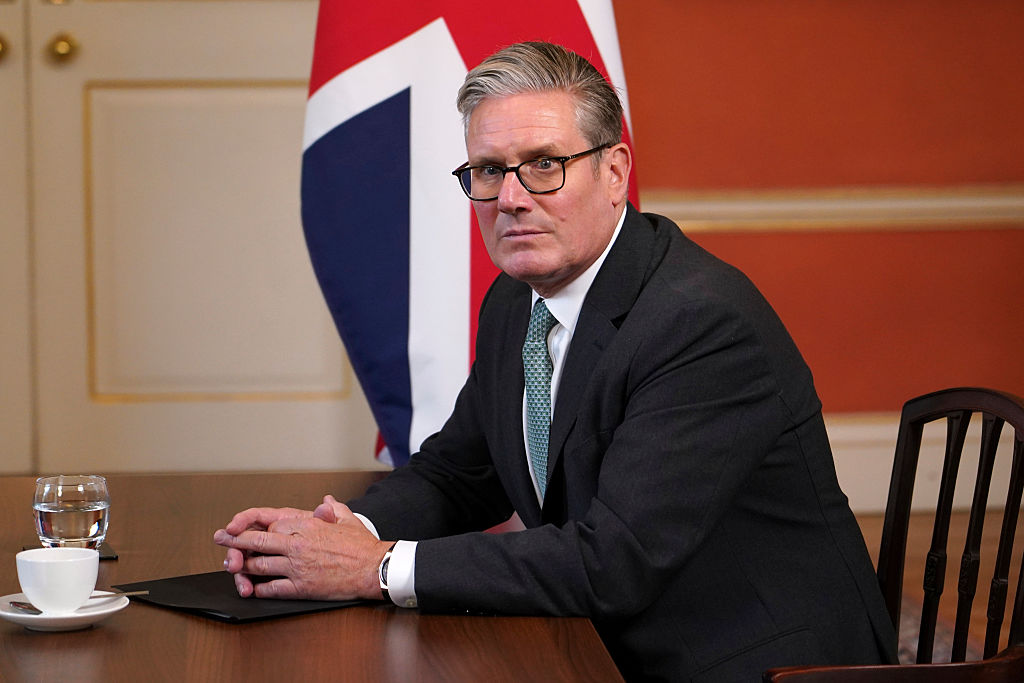By New Statesman
Copyright newstatesman

As MPs returned from recess earlier this month an anonymous memo began to circulate among backbenchers. Titled What did we learn on our summer holidays?, this 8-page document bears implicit criticism of the Prime Minister, Keir Starmer (although neither he, nor his closest adviser, Morgan McSweeney are mentioned by name). As delegates arrive in Liverpool today for the party’s annual conference, this document exposes the scathing contempt felt by many of the party’s backbenchers for the leadership and for what the party they have tied their careers to has now become.
Below the New Statesman has published this memo in full.
What did we learn on our summer holidays?
This is not the end of an old era. We are in a new tragic age of conflict and hard choices.
Class conflict, whose origins lie in the 2016 EU Referendum, is set to define national politics for the next decade.
The government has reached a fork in the road. Either to follow its instincts and take the easy path of the status quo and failure, or make the hard journey of reform and national reconstruction. Which way? It does not know because it is divided in itself.
Labour won power in the old era but it is governing in the new, in a world it did not expect and in a country it does not know.
Cathartic crises have not produced positive change in Labour, but political inertia. The party retains its old atrophying instincts and repeats its mistakes, ad nauseum.
The national crisis can be defined as the weakening of sovereign authority.
Sovereign democratic government can no longer secure itself in a political common ground and so achieve popular consent to speak and act with authority for the nation .
No party can achieve more than a third of the vote. The country is ungovernable.
The left, dominated by the professional middle classes and public sector, is the defender of the status quo.
Once the driving intellectual energy in the Labour Party but now defeated and exhausted, its demise explains the collapse of Labour as a living political force.
The nemesis of the left is the English populist revolt which has been gathering pace over the last decade and whose actions have now spread beyond those disaffected and deprived localities affected by rioting last year.
The local protests are against illegal migration, the state failure to stop the small boats, and the presence of large numbers of undocumented migrant men in local communities.
But the revolt goes deeper, born in the post-industrial destruction of the working class, the bourgeois assault on tradition, historically unprecedented levels of immigration transforming the country, the eclipse of generational ways of life built around stable communities and regularised work and union representation. The old world gone. All gone.
The governing laissez faire consensus toward the integration of ethnic cultural difference imposed an asymmetric multi-culturalism encouraging and promoting the expression of minority ethnic cultures and playing down or disparaging English and British culture and history.
One consequence has been the emergence of multiple ethnic communities, with no incentives to integrate, living in parallel cultures to mainstream society and its social norms and symbols of nationhood.
Liberal multi-culturalism has led to identity politics, igniting an ethnic, class consciousness amongst the working and lower middle classes of the dominant ethnic group, driven by deep feelings of injustice and dispossession.
The widespread political disaffection and populism of ‘us’ is aimed at ‘them’ who are the metropolitan based, post-national meritocratic class which controls large swathes of the media, the quangocracy, the NGO sector, civil service, judiciary, the Labour Party, and cultural and educational institutions.
Populism is the blowback against the exercise of the cultural power of this professional managerial class (PMC).
This higher educated PMC, aligned to the EU and to social and market liberalism, has also been the crucible of radical identity politics, and disruptive political campaigns against environmental degradation and fossil fuels, and most recently against Israel in the politics of ‘anti-Zionism’.
The economic function of the PMC in the globalised economy as ideological creator, interpreter and communicator of specialised forms of knowledge, and the adjudicator of the language and meanings of social and cultural norms has been undermined by its political defeat in the EU referendum, and its declining economic prospects.
Higher education as the gatekeeper of credentialled access to the elite and a middles class way of life is no longer the guarantor of economic security, access to decent housing, and a prosperous future.
The emergence of a populist left party out of the ashes of Corbynism signals the radicalisation of this higher educated class.
It constitutes a bourgeois left and its ‘Anti-Zionist’ alliance with activist parts of the Muslim population representing 15 per cent of the population poses an existential threaten to Jews in England.
The English populist revolt is of a different order of magnitude – a class conflict inflected by the assertion of English and British national identity, with an inflammatory streak of ethnic-nationalism and anti-Muslim hatred.
These class-based conflicts are whites against whites fighting over the future character of a multi-ethnic nation and the place of minority ethnic groups within it.
English national politics has become a centrifuge flinging energy and action outward to the unruly, anti-social extremes of left and right, and to religious sectarianism, leaving the centre, incapable of responding, impotent and lifeless.
Those who were once subordinate and disenfranchised – working class and lower middle class – are now arbiters of political power. Provincial England once marginal to the metropolis is now the terrain on which electoral success will be won or lost.
Labour is dominated by the London based majority of its membership.
Labour was once the political force for brokering minority ethnic groups into a common national culture. It no longer has the impartial authority of the labour interest to fulfil this role.
The critical task of brokering a political common ground between estranged interests such as Muslim communities and the white working class now lies in the hands of Nigel Farage and Reform.
As the summer ends Reform are shaping the political future. The Left does not see a country in revolt against the status quo but one manipulated by right wing populists.
Farage is to the left of his political support and Reform is the only political force capable of neutralising the extreme right and racist movements that have sprung into life. Farage understands this. The liberal left who relentlessly attack him do not.
His political failure will open the way for dark forces and the Left will have been the midwife of the storm they bring.
Providing a powerful dynamic generating the political energy of these conflicts, is a broken, debt laden, high tax, low productivity economy, characterised by wealth extraction and rentierism, and burdened by unsustainable levels of welfare spending and a bloated, wasteful, ineffective state.
No political party has a solution to the long term decline and stagnation of the economy and none are willing to confront the electorate with the trade-offs and hard choices that will be needed for national reconstruction.
As summer turns to Autumn, the Labour government has one last chance to put its politics of ‘country before party’ into practice and galvanise an effective and dynamic rule capable of taking the hard decisions that will build a broad political coalition and the political foundations for the internal rebuilding of the nation.
If the Labour government fails to do this, it will be the end of it. Today’s reshuffle does not augur well for the future.
[Further reading: Labour is losing its mind]



